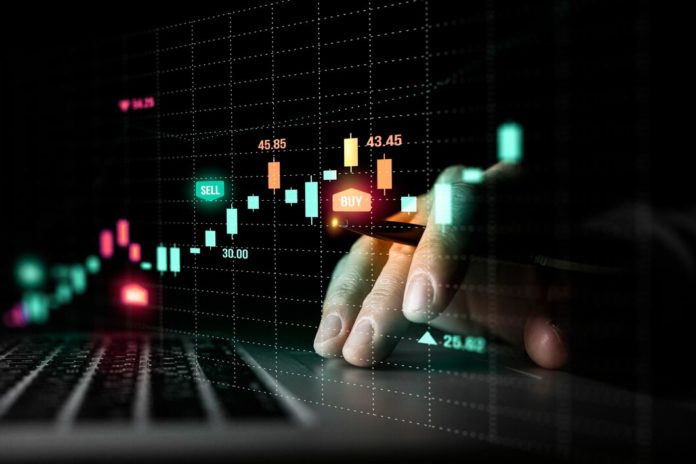In the age of digital finance, online trading has become a cornerstone for individual investors and large institutions alike. The ability to trade securities, commodities, and currencies with a click has democratized investing, but it also opened a Pandora’s box of cybersecurity risks.
As the landscape of online trading evolves, so do the threats that lurk in the cyber world, seeking to exploit any vulnerability. Before you go to binary options trading websites, you should be aware of the possible threats and the ways to protect yourself. In this article, we will explore the key cybersecurity risks in online trading and provide valuable insights on how to safeguard your investments.
The Cyber Threat Landscape in Online Trading
Online trading platforms have become prime targets for cybercriminals. The reason is clear: they are treasure troves of sensitive financial information and funds. Several cybersecurity risks can jeopardize an investor’s assets and personal data, including:
Phishing Attacks
Phishing is a deceptive practice where fraudsters send emails or create websites that resemble legitimate ones to trick individuals into providing sensitive information, such as login credentials. In online trading, falling for a phishing attack can give attackers access to your trading account, allowing them to steal funds or personal information.
Malware and Ransomware
Malware is malicious software that is designed to damage or disable computers and computer systems. When it comes to online trading, malware can be used to gain unauthorized access to an investor’s trading software or records. Ransomware, a type of malware, encrypts a victim’s files and demands a ransom to restore access. Traders may be coerced into paying large sums to regain access to their trading platforms or critical trading data.
Man-in-the-Middle (MitM) Attacks
MitM attacks occur when an attacker intercepts communication between a trader’s device and the trading platform. This can happen over unsecured Wi-Fi networks or through compromised trading sites. Attackers can then capture login details, redirect transactions, or alter trading instructions.
Brokerage Hacks
Even if an individual investor has impeccable cybersecurity practices, the brokerage firm itself can be hacked. Cybercriminals can breach a firm’s security measures and access a wide array of customer accounts, leading to large-scale theft or fraud.
Insider Threats
Sometimes, the threat comes from within the brokerage firm. Rogue employees with access to trading systems and customer accounts can manipulate markets, commit fraud, or steal sensitive information.
Protecting Your Online Trading Account
In the face of these cybersecurity risks, traders must be vigilant and proactive. Here are several strategies to protect your investments:
- Use Strong Authentication Measures: Ensure that your trading platform supports two-factor authentication (2FA) or multifactor authentication (MFA). This adds an extra layer of security beyond just a password, often requiring a temporary code sent to your phone or generated by an authentication app.
- Be Wary of Phishing Schemes: Always verify the authenticity of emails and websites. Never click on links or download attachments from unknown or suspicious sources. Be skeptical of emails asking for personal or financial information.
- Secure Your Devices: Keep your computer, smartphone, or tablet secure by installing reputable antivirus software and keeping it updated. Regularly update your operating system and applications to patch any security vulnerabilities.
- Monitor Your Accounts: Regularly check your trading accounts for any unauthorized transactions. If you detect any suspicious activity, report it to your brokerage firm immediately.
- Use Secure Networks: Avoid using public Wi-Fi networks for trading. If you must trade on the go, use a virtual private network (VPN) to encrypt your internet connection.
- Educate Yourself: Stay informed about the latest cybersecurity threats and best practices. Many brokerage firms offer resources and training on how to recognize and prevent cyber threats.
- Choose a Reputable Broker: Select a brokerage firm with a strong track record of cybersecurity. Reputable brokers invest in robust security measures and are transparent about their security practices.
- Keep Personal Information Private: Do not overshare personal information on social media or other online platforms. Cybercriminals often gather personal information to craft targeted phishing attacks.
- Have a Response Plan: Know what steps to take in case of a cybersecurity incident. This should include changing passwords, notifying your broker, and contacting credit bureaus if personal information is compromised.
Conclusion
Cybersecurity in online trading is a matter that cannot be taken lightly. In a world where digital threats are ever-evolving, the responsibility to protect one’s investments is both personal and collective.
By being aware of the risks and taking the necessary precautions, traders can significantly reduce the likelihood of falling victim to cyber-attacks. Brokerages and regulatory bodies also play a critical role in fortifying the infrastructure against these threats.
The confluence of vigilant investors, secure trading platforms, and stringent regulatory practices will pave the way for a safer online trading environment. The digital age has brought unparalleled access to financial markets, but it demands an equally sophisticated approach to cybersecurity – it’s a small price to pay for safeguarding one’s financial future.



































